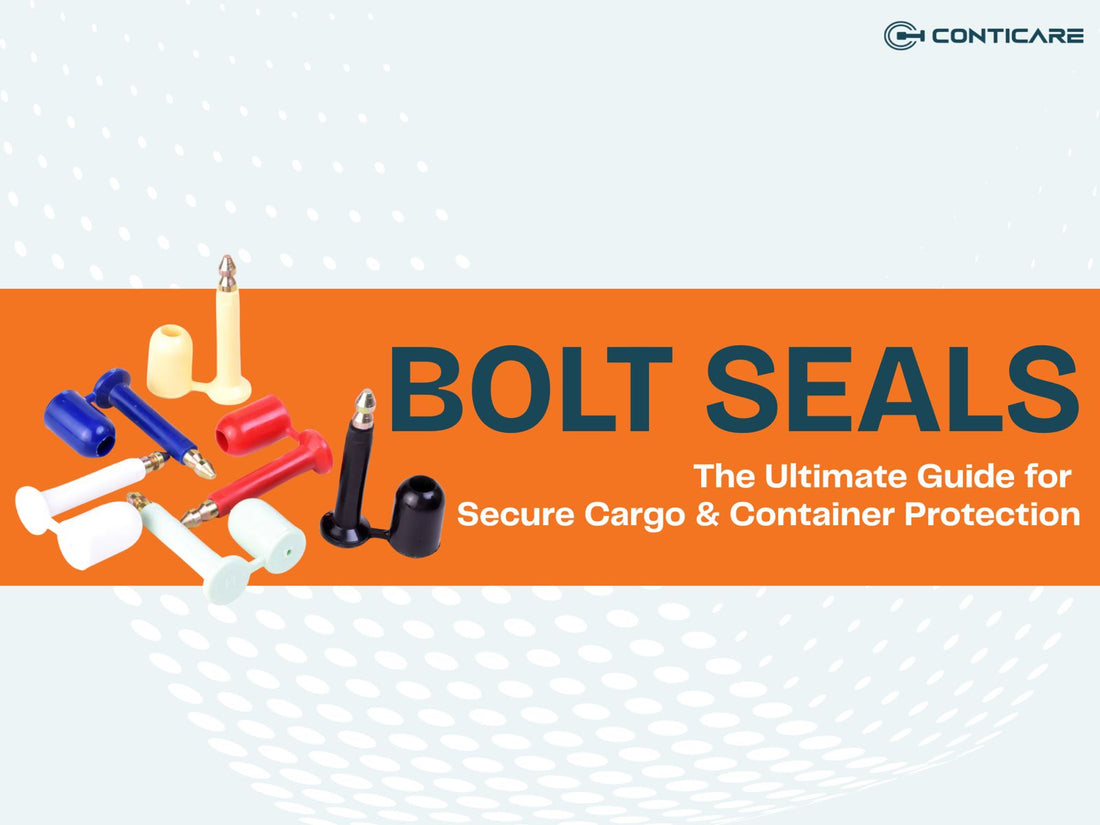
Bolt Seals: The Ultimate Guide for Secure Cargo & Container Protection
In the high-stakes world of global logistics and freight movement, bolt seals serve as the first line of defense against cargo tampering, theft, and compliance issues. These high-security seals are a must-have for containerised shipments, overland trailers, and high-value consignments. Built with robust materials and standardised under ISO 17712:2013, bolt seals offer both a physical and visual deterrent to tampering—giving logistics professionals peace of mind across every checkpoint.
What Are Bolt Seals and How Do They Work?
A bolt seal is a tamper-evident mechanical security device typically made from hardened steel with a plastic-coated shell. It’s composed of two parts: a steel bolt and a locking cap. Once snapped together through a container door latch, it forms a single-use lock that can only be removed with a specialised bolt seal cutter.
These seals are critical for:
-
Preventing unauthorised access during transport
-
Ensuring customs compliance (especially for shipments entering the U.S. under C-TPAT)
-
Maintaining chain-of-custody for audits and security records
ISO 17712:2013 sets the global standard, requiring bolt seals to have a minimum 18mm diameter, visible serial numbers or barcodes, and withstand tension, impact, and bending force tests.
Bolt Seals for Containers, Trailers & More – Where Are They Used?
The versatility of bolt seals makes them indispensable across multiple sectors of logistics and manufacturing.
-
Shipping Containers: Standard use in global freight to ensure doors remain sealed from port to port
-
Trailers: Commonly used in overland trucking and domestic cargo operations
-
Railway Wagons: Prevent pilferage and unauthorized access in intermodal transit
-
Tankers: Used on fuel and chemical tankers to prevent leakage or tampering
-
Air Cargo & Warehouses: Securing cargo crates and mobile storage units
Many modern bolt seals come with laser-etched numbering, RFID integration, and colour coding for easy identification and automation.
Choosing the Right Bolt Seal – Features That Matter
With multiple manufacturers and product types available, selecting the right bolt seal depends on a few critical factors:
-
Material Quality: Prefer galvanised or carbon steel with ABS or polymer coating for durability
-
Tamper Evidence: Look for anti-spin features and irreversible locking
-
Certifications: Always choose ISO 177122013-certified products for cross-border shipments
-
Customisation: Logos, barcodes, and serial numbers improve tracking and reduce counterfeiting
-
Sourcing Reliability: Buyers searching for bolt seals near me should verify the supplier’s ISO compliance and delivery timelines.
While most seals are single-use for security reasons, smart RFID versions can be reused in closed-loop systems.
How Much Do Bolt Seals Cost?
Bolt seal price varies depending on specifications, but here's a general range:
-
Standard pricing: ₹9 to ₹300 per seal ($0.13–$4 globally)
-
Factors influencing bolt seal cost:
-
Order volume (bulk discounts)
-
Customisations (laser-etched logos, barcodes, RFID)
-
Material quality and certifications
-
Domestic vs. imported products
-
Speed of fullfilment and MOQs
Buyers should balance price with quality and certification to avoid compliance risks and weak seal integrity.
Conclusion
From ocean freight containers to overland trailers, bolt seals remain an indispensable tool in global cargo security. Their tamper-evident design, regulatory compliance, and affordable cost make them the go-to solution for logistics professionals worldwide. Whether you're sourcing for high-volume exports or day-to-day supply chain operations, investing in the right bolt seal can secure not just your goods—but your business reputation too.








